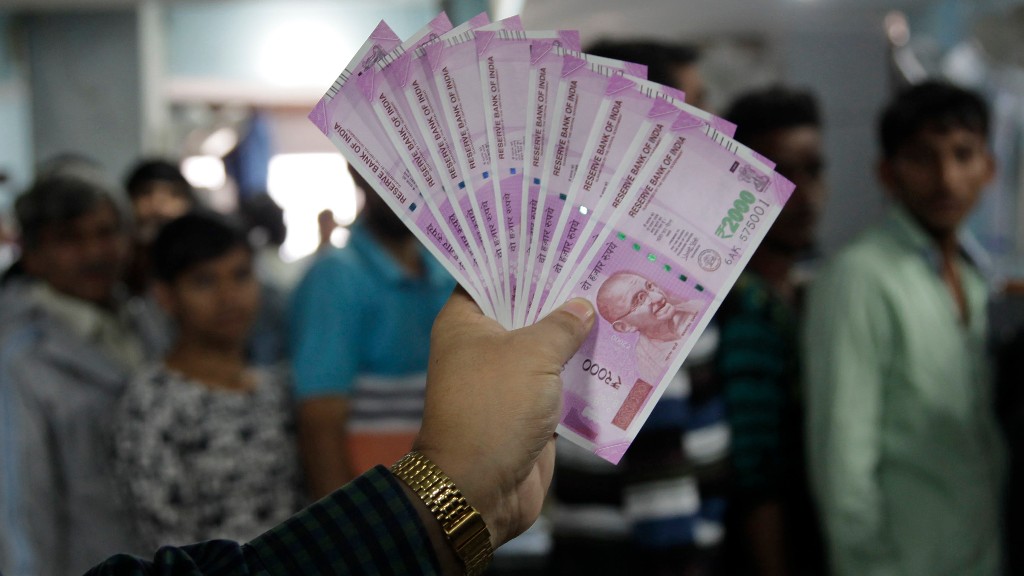Two shocks rocked the world on November 8: Donald Trump’s upset win in the US presidential elections, and the demonetisation of high-denomination currency in India.
Both can be expected to have profound repercussions. I will pass commenting on the tears of Hillary Clinton — delicious though they are to yours truly — except to say that to me the result was as unexpected as it was delightful.
The Indian economy experienced a massive shock with the announcement that Rs 500 and Rs 1,000 currency notes will no longer be legal tender starting from just a few hours after the announcement. An astounding 86 percent of all currency was rendered worthless for transactions, and only the remaining 14 percent was expected to serve for a short term (hopefully) the myriad purposes that money usually serves in an economy.
A monetary shock of that magnitude cannot but have complex intended and unintended consequences.
A Botched Operation?
The intended consequence has to do with “black money.” The belief is that this will remove the unaccounted-for money out of the economy, and that it will hurt those who have heaps of cash stashed away at home. Only time will tell if that intended consequence will materialise.
If say only 70 percent of high-denomination currency notes are exchanged by 31 December, then we can conclude that at least 30 percent of the high-denomination notes represent the amount of black money that was removed from the monetary system. That would be a good outcome.
Asset price inflation in the real estate sector will slow down and thus be good for the economy.
If nearly all of the high-denomination currency is exchanged for the new Rs 500 and Rs 2,000 bills, it would be a clear indication that those with black money figured out a way to launder their cash. We will know the result at the start of January 2017. And that is when it will be clear that this “surgical strike” was a very botched operation that did more harm than good.
Cash-Based Economy
The unintended consequence is that the shock of withdrawal of 86 percent of the money supply will hurt economic activity.
The contraction of the money supply will constrain the real economy — that fewer goods and services will be exchanged. This means fewer goods and services will be produced, and that means fewer goods and services will be consumed. And this means lower overall demand, and lower overall income, etc.
India is mostly a cash economy, unlike say an advanced industrialised economy like the US. I doubt that I have handled more than $20 in cash over the last year; credit cards and online payments suffice. In the last two weeks that I have been in India, I have spent around Rs 10,000 in cash. Except for a relatively small proportion of transactions, most people are paid in cash and spend cash. Remember that only about 7 percent of labour in India is in the formal sector.
I am not a macro economist, and so this is not an expert opinion. I look at the world through microeconomic lenses (the only lenses that makes sense since macroeconomics is a load of worthless just-so made up stories). Money is the medium of exchange, and exchange lies at the very core of an economy. Put even a little bit of sand into the machinery of exchange, and you can be assured that the gains from exchange will be lost.
A Disease Called Taxation
You can never do only one thing. That’s what I call the First Law of Ecology — and economics too. Maybe this exercise will bury a bit of black money, maybe it won’t. But for sure this exercise will put the brakes on the real economy. Will it result in net benefits or losses? If nearly all the high denomination bills are exchanged, it will be a net loss. If a significant (say 30 percent) are not exchanged, that’s a positive. But that positive has to be weighed against the negative of the contraction of the Indian economy.
My sense it that it will be a net loss.
The problem of black money is a problem that is essentially government created. High unreasonable taxes compel tax avoidance and the generation of “black money.” Black money is the symptom; the disease is taxation.
The reasonable solution is to reduce government expenditure, thus reducing the need for high taxes, and thus eliminating the phenomenon of black money.
But it will be a cold day in hell when the government considers reducing taxes. Until then, we have to silently suffer the mess. Breathe deep. This too shall pass.
(The author is a respected economist/author who teaches in the US. The views expressed here are the author’s own. The Quint neither endorses nor is responsible for the same.)
(At The Quint, we question everything. Play an active role in shaping our journalism by becoming a member today.)
